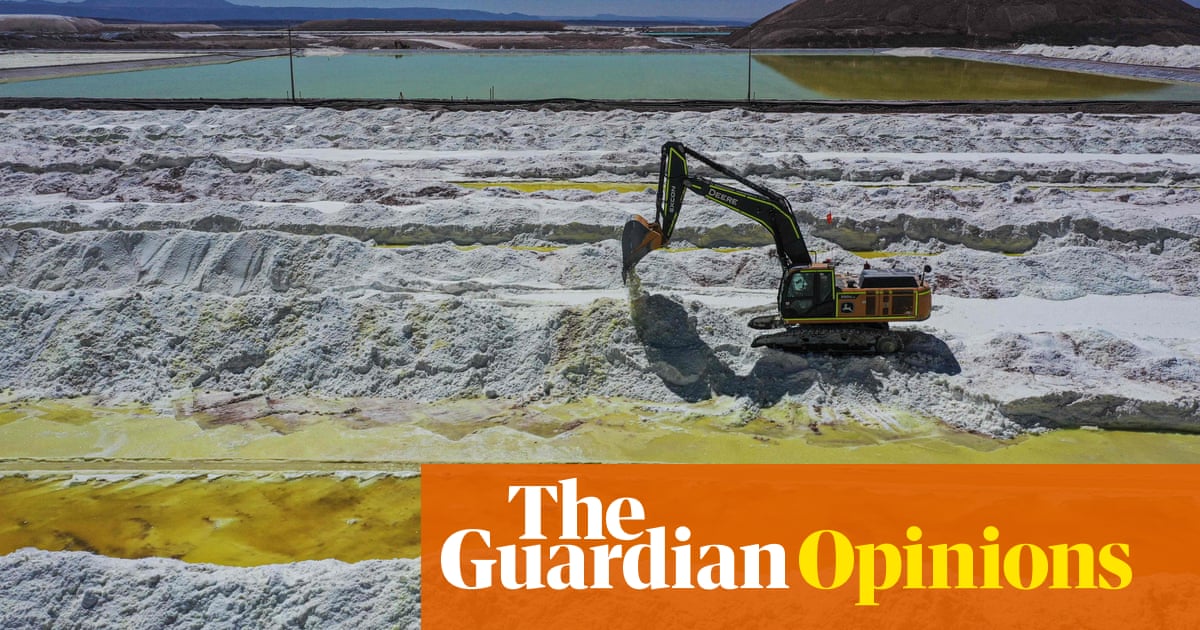Despite its name, the infrastructure used by the “cloud” accounts for more global greenhouse emissions than commercial flights. In 2018, for instance, the 5bn YouTube hits for the viral song Despacito used the same amount of energy it would take to heat 40,000 US homes annually.
Large language models such as ChatGPT are some of the most energy-guzzling technologies of all. Research suggests, for instance, that about 700,000 litres of water could have been used to cool the machines that trained ChatGPT-3 at Microsoft’s data facilities.
Additionally, as these companies aim to reduce their reliance on fossil fuels, they may opt to base their datacentres in regions with cheaper electricity, such as the southern US, potentially exacerbating water consumption issues in drier parts of the world.
Furthermore, while minerals such as lithium and cobalt are most commonly associated with batteries in the motor sector, they are also crucial for the batteries used in datacentres. The extraction process often involves significant water usage and can lead to pollution, undermining water security. The extraction of these minerals are also often linked to human rights violations and poor labour standards. Trying to achieve one climate goal of limiting our dependence on fossil fuels can compromise another goal, of ensuring everyone has a safe and accessible water supply.
Moreover, when significant energy resources are allocated to tech-related endeavours, it can lead to energy shortages for essential needs such as residential power supply. Recent data from the UK shows that the country’s outdated electricity network is holding back affordable housing projects.
In other words, policy needs to be designed not to pick sectors or technologies as “winners”, but to pick the willing by providing support that is conditional on companies moving in the right direction. Making disclosure of environmental practices and impacts a condition for government support could ensure greater transparency and accountability.



If someone wants to use a vibrator that consumes an entire city’s worth of yearly energy consumption each day then I’d say that they shouldn’t be allowed to do that. Making excessive energy consumption prohibitively expensive goes some way towards discouraging this at least.
If someone wants to pay that much for energy and it’s priced at a level that makes it sustainable, who are we to say it’s not worth it?
The main argument I’ve seen against higher prices for things energy and water is that it would place an undue burden on low-income people, but that’s one of the many problems that could be eliminated in its entirety by a universal basic income program. Even if it’s just a bare-bones program that only covers the cost of an average person’s water and energy needs, such a system would give everyone an incentive to conserve when possible, and it would do it without burdening people who can’t afford it.
Hmm, that makes me think we could adopt a tiered pricing system for things like water. The first 100 gallons are priced at 10 cents each, then usage beyond that goes up to 50 cents each?
You could tweak the rates & threshold to make more sense – I don’t know water rates off the top of my head, and that probably varies by orders of magnitude across the entire U.S. Also, I have no idea what water usage rates look like for different types of properties. A sports stadium, an office building, an aluminum processing plant, and a SFH with a rain garden will all have really different water usage details.
All this is kind of hinting at a broader “environmental impact” measure. That gets super complicated, though.
deleted by creator
That depends on the show they put on. There are many of us that would pay a few bucks to watch someone use a vibrator that powerful on themselves.
Nothing wakes my weasel like a vibrator powered by diesel.
Ban all 4K video then.
First gen, 4k video rendering without hardware support also consumed orders of magnitude more power than any other common thing before it, good thing we banned it, instead of you know, just letting the technology mature and develop for a couple years til we had hardware chips that could do it for almost no power.
Hell, video games are less useful for the world than AI and they consume orders of magnitude more power than ChatGPT, so let’s ban them too right?
and a helluvalotta stars
Right, so the imperative to consume less power inspired the innovation needed to make it ultimately viable in the long term. Rather than people being left to consume infinite resources without a care in the world. Let’s hope that the imperative to be efficient and not use all resources all the time inspires this to also becoming viably efficient rather than regulators/officials just allowing it to spin out of control.
Yes, electricity still costs companies money so at a base level they are incentivized to minimize its usage, and then on-top of that carbon taxes should be helping to cover the environmental and incentive costs for further energy reducing innovations.
If you just want to ban electricity consuming industries I don’t know why you’d start with AI, which is brand new and has genuine useful value to society, and not say, something like advertising which is just an economic distortion and massive drain on society.
Did I say at some stage that I just want a flat, nuanceless ban on industries? I answered a hypothetical posed about individual’s personal consumption.
AI needs reigning in for so many different reasons, energy consumption or otherwise. Its utility to society is more than counterbalanced by the dangers that it and its unregulated expansion poses to that same society. If nothing else, government and industry bodies to catch up with it and impose appropriate standards.
People said the same things about computers for the same reasons. I’m glad we didn’t listen to them.